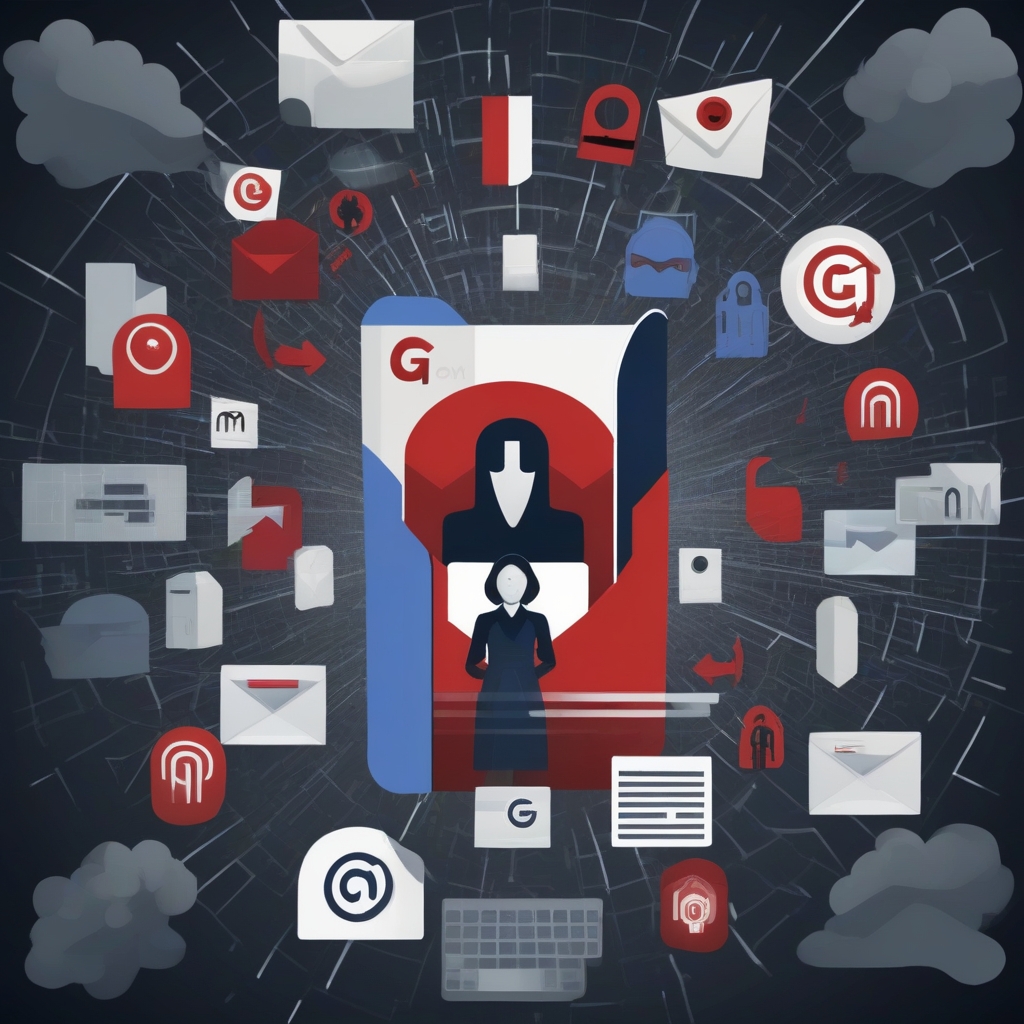The Rise of AI-Powered Cyberattacks
In recent times, cyber threats have taken a significant turn with the advent of artificial intelligence (AI). The sophisticated nature of AI-powered cyberattacks drastically increases the risk for popular platforms, with Gmail users being particularly vulnerable. As AI continues to evolve, so too does the arsenal of tools at the disposal of cybercriminals. This blog post delves into the ramifications of these advancements, providing insights on how they threaten Gmail security and what users can do to safeguard their accounts.
Understanding AI In Cybersecurity
AI in cybersecurity is a double-edged sword. While it aids in defending against threats by predicting and identifying suspicious behavior, it also equips attackers with the means to launch more refined and potent assaults. **AI is particularly adept at identifying vulnerabilities**, allowing attackers to ensure higher success rates in their strategies.
The Mechanics of AI-Powered Attacks
Cybercriminals use AI to automate tasks that would traditionally require manual input. This approach not only saves time but also reduces the chances of error and creates more comprehensive attack patterns. Here are a few ways AI has transformed cyberattacks:
- **Phishing Emails:** AI can create highly personalized phishing emails that mimic genuine communications, making it difficult for users to discern their authenticity.
- **Malware Development:** With the help of machine learning algorithms, AI can automate the creation of new malware that can evade detection by traditional security systems.
- **Password Cracking:** AI improves the speed and efficiency of deciphering user passwords, enhancing brute-force attack potential.
How AI-Powered Attacks Threaten Gmail Security
Gmail is a primary target for cybercriminals due to its massive user base and integration with other Google services. AI technologies make these attacks more threatening and challenging to prevent. Here are some specific threats facing Gmail users:
1. Sophisticated Phishing Campaigns
One of the most prevalent threats is the launch of sophisticated phishing campaigns. **Cybercriminals use AI to gather and analyze data**, such as user habits and preferences, from publicly available sources. This information is then utilized to craft highly targeted phishing emails that can deceive even the most vigilant users. The precision and personalization of these emails increase the chances of a successful breach significantly.
2. AI-Driven Spoofing
AI has made it easier for attackers to impersonate legitimate entities, such as colleagues or service providers. AI-driven spoofing involves creating replicas of trusted domains, making it difficult for users to recognize fraudulent communication. This approach can lead to severe consequences if users unknowingly provide sensitive information to attackers.
3. Advanced Evasion Techniques
Cybercriminals leverage AI to develop malware and phishing attacks that evade detection by traditional security systems. This includes **using AI to analyze existing defense mechanisms** and devising ways to bypass them. The result is a stealthier approach that increases the success rate of cyberattacks on Gmail users.
Protecting Yourself From AI-Powered Cyberattacks
With the growing threat of AI-powered cyberattacks, being proactive in protecting Gmail accounts is more crucial than ever. Below are some actionable steps users can take to enhance their security:
1. Implement Strong Passwords and Use a Password Manager
Ensuring a robust password is the first line of defense against unauthorized access. Create complex passwords using a combination of characters, numbers, and symbols. **Consider using a password manager** to generate and store strong passwords securely.
2. Enable Two-Factor Authentication (2FA)
Two-factor authentication adds an additional layer of security. Even if a cybercriminal obtains your password, they will not be able to access your account without the second authentication factor, usually a code sent to your mobile device.
3. Stay Informed and Educated
Continuously educate yourself about the latest phishing tactics and cybersecurity trends. Understanding how AI influences these threats can help you identify suspicious activity early on.
4. Use Advanced Security Features
Gmail offers several security features that can enhance protection, such as:
- **Security checkup:** Regularly run security checkups to review any unauthorized access or changes to account settings.
- **Alert Notifications:** Enable alerts for suspicious activity, such as new logins from unfamiliar locations or devices.
- **Keep Software Updated:** Regularly update your devices and applications to patch any security vulnerabilities that could be exploited by attackers.
The Role of Organizations in Fortifying Gmail Security
Beyond individual users, organizations also play a key role in safeguarding their employees’ Gmail accounts against AI-powered threats. **Implementing comprehensive cybersecurity training programs** can equip employees with the knowledge to recognize and mitigate attacks. Moreover, leveraging enhanced security solutions that incorporate AI for defense can counteract the evolving nature of these cyber threats.
Investing in Advanced Threat Detection Systems
Organizations should invest in advanced threat detection systems that utilize AI to monitor, detect, and respond to threats in real-time. These systems can proactively identify suspicious activities and prevent breaches before they occur.
Regular Security Audits and Penetration Testing
Conducting regular security audits and penetration testing can help identify vulnerabilities within the organization’s infrastructure. By simulating cyberattacks, businesses can better prepare for and defend against real-world threats.
Conclusion: Staying Ahead of AI-Powered Cyberattacks
As technology continues to advance, the threat landscape for Gmail users also evolves. The rise of AI-powered cyberattacks calls for a renewed focus on security measures and a continuous commitment to staying informed about emerging threats. By taking the necessary steps to protect your accounts and staying vigilant, users can reduce the risk of falling victim to these sophisticated attacks. Throughout this evolving landscape, one thing remains clear: cybersecurity is no longer merely an option but a necessity for all digital users.

Leave a Reply